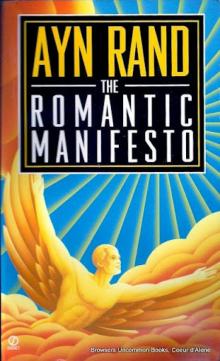The Classic Sci-Fi Collection Read online
Page 28
“You used to have some pretty large textile manufacturing establishments, even in your day, although not comparable with ours. No doubt you have visited these great mills in your time, covering acres of ground, employing thousands of hands, and combining under one roof, under one control, the hundred distinct processes between, say, the cotton bale and the bale of glossy calicoes. You have admired the vast economy of labor as of mechanical force resulting from the perfect interworking with the rest of every wheel and every hand. No doubt you have reflected how much less the same force of workers employed in that factory would accomplish if they were scattered, each man working independently. Would you think it an exaggeration to say that the utmost product of those workers, working thus apart, however amicable their relations might be, was increased not merely by a percentage, but many fold, when their efforts were organized under one control? Well now, Mr. West, the organization of the industry of the nation under a single control, so that all its processes interlock, has multiplied the total product over the utmost that could be done under the former system, even leaving out of account the four great wastes mentioned, in the same proportion that the product of those millworkers was increased by cooperation. The effectiveness of the working force of a nation, under the myriad-headed leadership of private capital, even if the leaders were not mutual enemies, as compared with that which it attains under a single head, may be likened to the military efficiency of a mob, or a horde of barbarians with a thousand petty chiefs, as compared with that of a disciplined army under one general—such a fighting machine, for example, as the German army in the time of Von Moltke.”
“After what you have told me,” I said, “I do not so much wonder that the nation is richer now than then, but that you are not all Croesuses.”
“Well,” replied Dr. Leete, “we are pretty well off. The rate at which we live is as luxurious as we could wish. The rivalry of ostentation, which in your day led to extravagance in no way conducive to comfort, finds no place, of course, in a society of people absolutely equal in resources, and our ambition stops at the surroundings which minister to the enjoyment of life. We might, indeed, have much larger incomes, individually, if we chose so to use the surplus of our product, but we prefer to expend it upon public works and pleasures in which all share, upon public halls and buildings, art galleries, bridges, statuary, means of transit, and the conveniences of our cities, great musical and theatrical exhibitions, and in providing on a vast scale for the recreations of the people. You have not begun to see how we live yet, Mr. West. At home we have comfort, but the splendor of our life is, on its social side, that which we share with our fellows. When you know more of it you will see where the money goes, as you used to say, and I think you will agree that we do well so to expend it.”
“I suppose,” observed Dr. Leete, as we strolled homeward from the dining hall, “that no reflection would have cut the men of your wealth-worshiping century more keenly than the suggestion that they did not know how to make money. Nevertheless that is just the verdict history has passed on them. Their system of unorganized and antagonistic industries was as absurd economically as it was morally abominable. Selfishness was their only science, and in industrial production selfishness is suicide. Competition, which is the instinct of selfishness, is another word for dissipation of energy, while combination is the secret of efficient production; and not till the idea of increasing the individual hoard gives place to the idea of increasing the common stock can industrial combination be realized, and the acquisition of wealth really begin. Even if the principle of share and share alike for all men were not the only humane and rational basis for a society, we should still enforce it as economically expedient, seeing that until the disintegrating influence of self-seeking is suppressed no true concert of industry is possible.”
CHAPTER 23
That evening, as I sat with Edith in the music room, listening to some pieces in the programme of that day which had attracted my notice, I took advantage of an interval in the music to say, “I have a question to ask you which I fear is rather indiscreet.”
“I am quite sure it is not that,” she replied, encouragingly.
“I am in the position of an eavesdropper,” I continued, “who, having overheard a little of a matter not intended for him, though seeming to concern him, has the impudence to come to the speaker for the rest.”
“An eavesdropper!” she repeated, looking puzzled.
“Yes,” I said, “but an excusable one, as I think you will admit.”
“This is very mysterious,” she replied.
“Yes,” said I, “so mysterious that often I have doubted whether I really overheard at all what I am going to ask you about, or only dreamed it. I want you to tell me. The matter is this: When I was coming out of that sleep of a century, the first impression of which I was conscious was of voices talking around me, voices that afterwards I recognized as your father’s, your mother’s, and your own. First, I remember your father’s voice saying, “He is going to open his eyes. He had better see but one person at first.” Then you said, if I did not dream it all, “Promise me, then, that you will not tell him.” Your father seemed to hesitate about promising, but you insisted, and your mother interposing, he finally promised, and when I opened my eyes I saw only him.”
I had been quite serious when I said that I was not sure that I had not dreamed the conversation I fancied I had overheard, so incomprehensible was it that these people should know anything of me, a contemporary of their great-grandparents, which I did not know myself. But when I saw the effect of my words upon Edith, I knew that it was no dream, but another mystery, and a more puzzling one than any I had before encountered. For from the moment that the drift of my question became apparent, she showed indications of the most acute embarrassment. Her eyes, always so frank and direct in expression, had dropped in a panic before mine, while her face crimsoned from neck to forehead.
“Pardon me,” I said, as soon as I had recovered from bewilderment at the extraordinary effect of my words. “It seems, then, that I was not dreaming. There is some secret, something about me, which you are withholding from me. Really, doesn’t it seem a little hard that a person in my position should not be given all the information possible concerning himself?”
“It does not concern you—that is, not directly. It is not about you exactly,” she replied, scarcely audibly.
“But it concerns me in some way,” I persisted. “It must be something that would interest me.”
“I don’t know even that,” she replied, venturing a momentary glance at my face, furiously blushing, and yet with a quaint smile flickering about her lips which betrayed a certain perception of humor in the situation despite its embarrassment,—"I am not sure that it would even interest you.”
“Your father would have told me,” I insisted, with an accent of reproach. “It was you who forbade him. He thought I ought to know.”
She did not reply. She was so entirely charming in her confusion that I was now prompted, as much by the desire to prolong the situation as by my original curiosity, to importune her further.
“Am I never to know? Will you never tell me?” I said.
“It depends,” she answered, after a long pause.
“On what?” I persisted.
“Ah, you ask too much,” she replied. Then, raising to mine a face which inscrutable eyes, flushed cheeks, and smiling lips combined to render perfectly bewitching, she added, “What should you think if I said that it depended on—yourself?”
“On myself?” I echoed. “How can that possibly be?”
“Mr. West, we are losing some charming music,” was her only reply to this, and turning to the telephone, at a touch of her finger she set the air to swaying to the rhythm of an adagio. After that she took good care that the music should leave no opportunity for conversation. She kept her face averted from me, and pretended to be absorbed in the airs, but that it was a mere pretense the crimson tide standing at flood in her cheeks su
fficiently betrayed.
When at length she suggested that I might have heard all I cared to, for that time, and we rose to leave the room, she came straight up to me and said, without raising her eyes, “Mr. West, you say I have been good to you. I have not been particularly so, but if you think I have, I want you to promise me that you will not try again to make me tell you this thing you have asked to-night, and that you will not try to find it out from any one else,—my father or mother, for instance.”
To such an appeal there was but one reply possible. “Forgive me for distressing you. Of course I will promise,” I said. “I would never have asked you if I had fancied it could distress you. But do you blame me for being curious?”
“I do not blame you at all.”
“And some time,” I added, “if I do not tease you, you may tell me of your own accord. May I not hope so?”
“Perhaps,” she murmured.
“Only perhaps?”
Looking up, she read my face with a quick, deep glance. “Yes,” she said, “I think I may tell you—some time”: and so our conversation ended, for she gave me no chance to say anything more.
That night I don’t think even Dr. Pillsbury could have put me to sleep, till toward morning at least. Mysteries had been my accustomed food for days now, but none had before confronted me at once so mysterious and so fascinating as this, the solution of which Edith Leete had forbidden me even to seek. It was a double mystery. How, in the first place, was it conceivable that she should know any secret about me, a stranger from a strange age? In the second place, even if she should know such a secret, how account for the agitating effect which the knowledge of it seemed to have upon her? There are puzzles so difficult that one cannot even get so far as a conjecture as to the solution, and this seemed one of them. I am usually of too practical a turn to waste time on such conundrums; but the difficulty of a riddle embodied in a beautiful young girl does not detract from its fascination. In general, no doubt, maidens’ blushes may be safely assumed to tell the same tale to young men in all ages and races, but to give that interpretation to Edith’s crimson cheeks would, considering my position and the length of time I had known her, and still more the fact that this mystery dated from before I had known her at all, be a piece of utter fatuity. And yet she was an angel, and I should not have been a young man if reason and common sense had been able quite to banish a roseate tinge from my dreams that night.
CHAPTER 24
In the morning I went down stairs early in the hope of seeing Edith alone. In this, however, I was disappointed. Not finding her in the house, I sought her in the garden, but she was not there. In the course of my wanderings I visited the underground chamber, and sat down there to rest. Upon the reading table in the chamber several periodicals and newspapers lay, and thinking that Dr. Leete might be interested in glancing over a Boston daily of 1887, I brought one of the papers with me into the house when I came.
At breakfast I met Edith. She blushed as she greeted me, but was perfectly self-possessed. As we sat at table, Dr. Leete amused himself with looking over the paper I had brought in. There was in it, as in all the newspapers of that date, a great deal about the labor troubles, strikes, lockouts, boycotts, the programmes of labor parties, and the wild threats of the anarchists.
“By the way,” said I, as the doctor read aloud to us some of these items, “what part did the followers of the red flag take in the establishment of the new order of things? They were making considerable noise the last thing that I knew.”
“They had nothing to do with it except to hinder it, of course,” replied Dr. Leete. “They did that very effectually while they lasted, for their talk so disgusted people as to deprive the best considered projects for social reform of a hearing. The subsidizing of those fellows was one of the shrewdest moves of the opponents of reform.”
“Subsidizing them!” I exclaimed in astonishment.
“Certainly,” replied Dr. Leete. “No historical authority nowadays doubts that they were paid by the great monopolies to wave the red flag and talk about burning, sacking, and blowing people up, in order, by alarming the timid, to head off any real reforms. What astonishes me most is that you should have fallen into the trap so unsuspectingly.”
“What are your grounds for believing that the red flag party was subsidized?” I inquired.
“Why simply because they must have seen that their course made a thousand enemies of their professed cause to one friend. Not to suppose that they were hired for the work is to credit them with an inconceivable folly.[1] In the United States, of all countries, no party could intelligently expect to carry its point without first winning over to its ideas a majority of the nation, as the national party eventually did.”
“The national party!” I exclaimed. “That must have arisen after my day. I suppose it was one of the labor parties.”
“Oh no!” replied the doctor. “The labor parties, as such, never could have accomplished anything on a large or permanent scale. For purposes of national scope, their basis as merely class organizations was too narrow. It was not till a rearrangement of the industrial and social system on a higher ethical basis, and for the more efficient production of wealth, was recognized as the interest, not of one class, but equally of all classes, of rich and poor, cultured and ignorant, old and young, weak and strong, men and women, that there was any prospect that it would be achieved. Then the national party arose to carry it out by political methods. It probably took that name because its aim was to nationalize the functions of production and distribution. Indeed, it could not well have had any other name, for its purpose was to realize the idea of the nation with a grandeur and completeness never before conceived, not as an association of men for certain merely political functions affecting their happiness only remotely and superficially, but as a family, a vital union, a common life, a mighty heaven-touching tree whose leaves are its people, fed from its veins, and feeding it in turn. The most patriotic of all possible parties, it sought to justify patriotism and raise it from an instinct to a rational devotion, by making the native land truly a father land, a father who kept the people alive and was not merely an idol for which they were expected to die.”
[1] I fully admit the difficulty of accounting for the course of the anarchists on any other theory than that they were subsidized by the capitalists, but at the same time, there is no doubt that the theory is wholly erroneous. It certainly was not held at the time by any one, though it may seem so obvious in the retrospect.
CHAPTER 25
The personality of Edith Leete had naturally impressed me strongly ever since I had come, in so strange a manner, to be an inmate of her father’s house, and it was to be expected that after what had happened the night previous, I should be more than ever preoccupied with thoughts of her. From the first I had been struck with the air of serene frankness and ingenuous directness, more like that of a noble and innocent boy than any girl I had ever known, which characterized her. I was curious to know how far this charming quality might be peculiar to herself, and how far possibly a result of alterations in the social position of women which might have taken place since my time. Finding an opportunity that day, when alone with Dr. Leete, I turned the conversation in that direction.
“I suppose,” I said, “that women nowadays, having been relieved of the burden of housework, have no employment but the cultivation of their charms and graces.”
“So far as we men are concerned,” replied Dr. Leete, “we should consider that they amply paid their way, to use one of your forms of expression, if they confined themselves to that occupation, but you may be very sure that they have quite too much spirit to consent to be mere beneficiaries of society, even as a return for ornamenting it. They did, indeed, welcome their riddance from housework, because that was not only exceptionally wearing in itself, but also wasteful, in the extreme, of energy, as compared with the cooperative plan; but they accepted relief from that sort of work only that they might contribute in other and
more effectual, as well as more agreeable, ways to the common weal. Our women, as well as our men, are members of the industrial army, and leave it only when maternal duties claim them. The result is that most women, at one time or another of their lives, serve industrially some five or ten or fifteen years, while those who have no children fill out the full term.”
“A woman does not, then, necessarily leave the industrial service on marriage?” I queried.
“No more than a man,” replied the doctor. “Why on earth should she? Married women have no housekeeping responsibilities now, you know, and a husband is not a baby that he should be cared for.”
“It was thought one of the most grievous features of our civilization that we required so much toil from women,” I said; “but it seems to me you get more out of them than we did.”
Dr. Leete laughed. “Indeed we do, just as we do out of our men. Yet the women of this age are very happy, and those of the nineteenth century, unless contemporary references greatly mislead us, were very miserable. The reason that women nowadays are so much more efficient colaborers with the men, and at the same time are so happy, is that, in regard to their work as well as men’s, we follow the principle of providing every one the kind of occupation he or she is best adapted to. Women being inferior in strength to men, and further disqualified industrially in special ways, the kinds of occupation reserved for them, and the conditions under which they pursue them, have reference to these facts. The heavier sorts of work are everywhere reserved for men, the lighter occupations for women. Under no circumstances is a woman permitted to follow any employment not perfectly adapted, both as to kind and degree of labor, to her sex. Moreover, the hours of women’s work are considerably shorter than those of men’s, more frequent vacations are granted, and the most careful provision is made for rest when needed. The men of this day so well appreciate that they owe to the beauty and grace of women the chief zest of their lives and their main incentive to effort, that they permit them to work at all only because it is fully understood that a certain regular requirement of labor, of a sort adapted to their powers, is well for body and mind, during the period of maximum physical vigor. We believe that the magnificent health which distinguishes our women from those of your day, who seem to have been so generally sickly, is owing largely to the fact that all alike are furnished with healthful and inspiriting occupation.”

 Anthem
Anthem We the Living
We the Living Atlas Shrugged
Atlas Shrugged The Fountainhead
The Fountainhead The Romantic Manifesto: A Philosophy of Literature
The Romantic Manifesto: A Philosophy of Literature The Classic Sci-Fi Collection
The Classic Sci-Fi Collection The Early Ayn Rand
The Early Ayn Rand